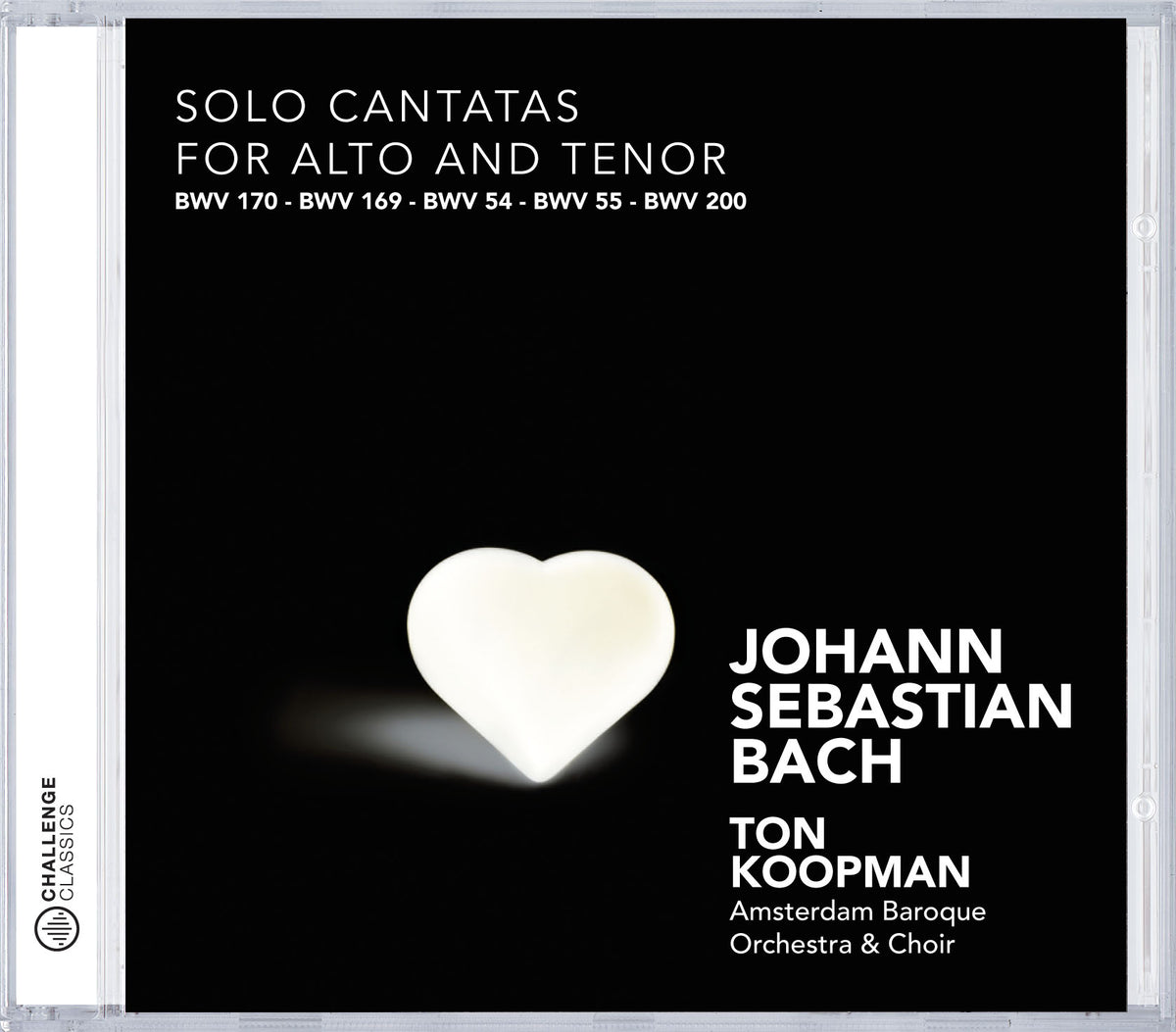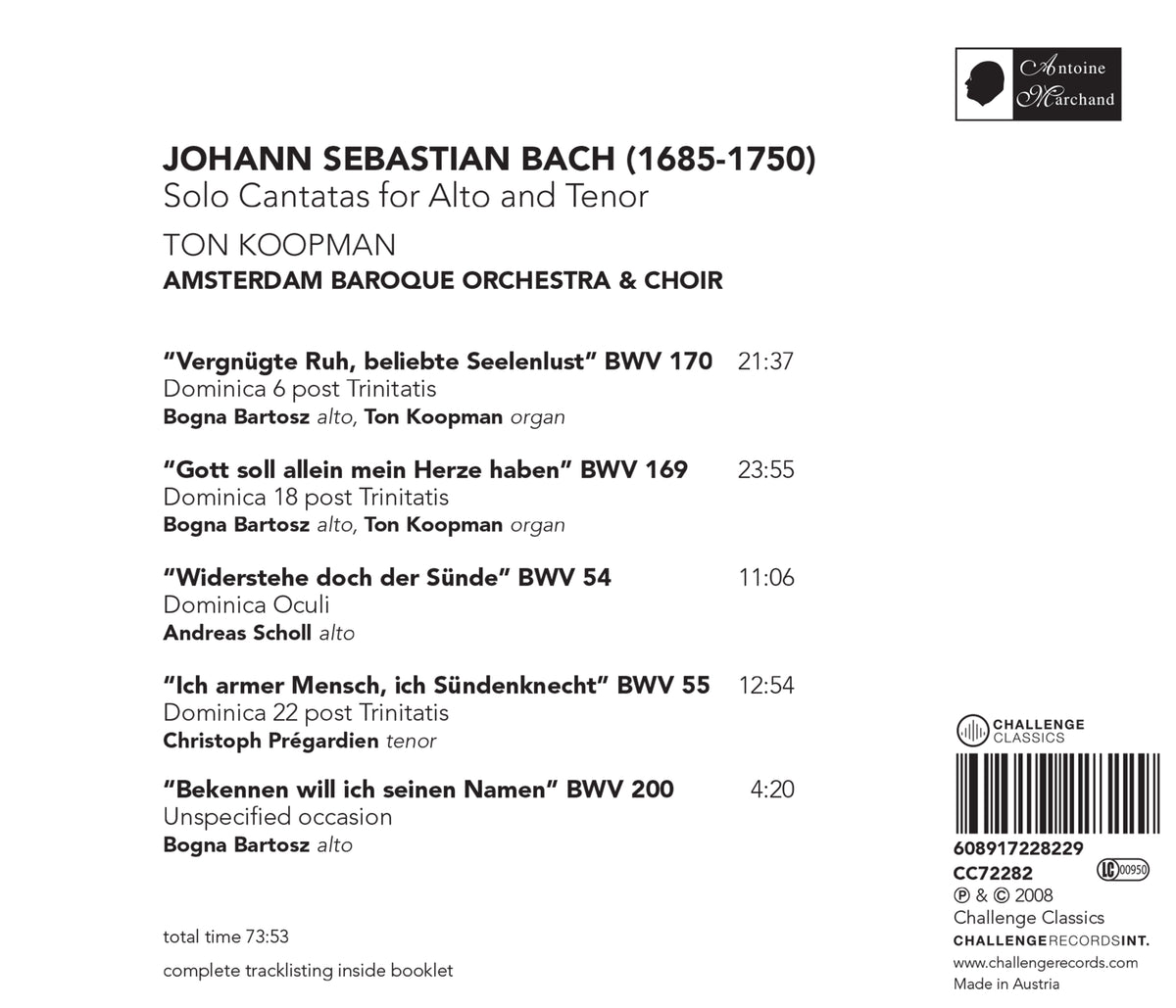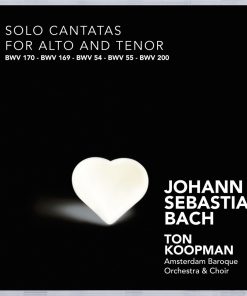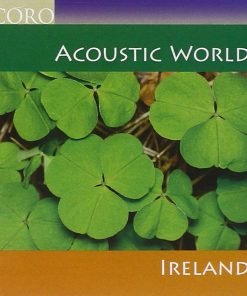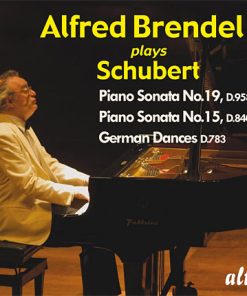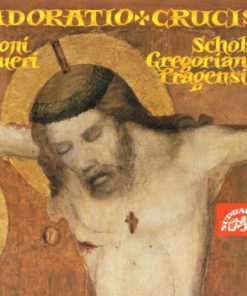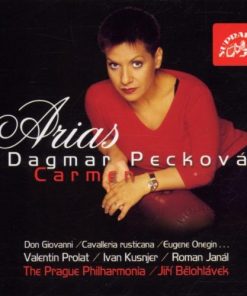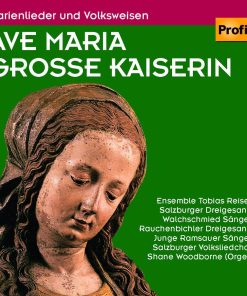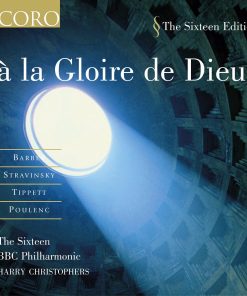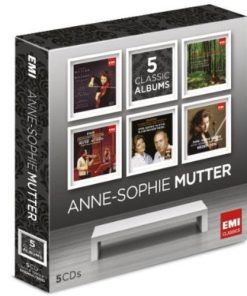BACH: SOLO CANTATAS FOR ALTO AND TENOR – TON KOOPMAN & THE AMSTERDAM BAROQUE ORCHESTRA CHALLENGE
$ 2,99 $ 1,79

01. “Vergnügte Ruh, beliebte Seelenlust” BWV 170: Aria: “Vergnügte ruh, beliebte Seelenlust” 06:33
02. “Vergnügte Ruh, beliebte Seelenlust” BWV 170: Recitative: “Die Welt, das Sündenhaus” 01:10
03. “Vergnügte Ruh, beliebte Seelenlust” BWV 170: Aria: “Wie jammern mich doch die verkehrten Herzen” 07:12
04. “Vergnügte Ruh, beliebte Seelenlust” BWV 170: recitative: “Wer sollte sich demnach” 01:02
05. “Vergnügte Ruh, beliebte Seelenlust” BWV 170: Aria: “Mir ekelt mehr zu leben” 05:40
06. “Gott soll allein mein Herze haben” BWV 169: Sinfonia 07:21
07. “Gott soll allein mein Herze haben” BWV 169: Arioso: “Gott soll allein mein Herze haben” 02:27
08. “Gott soll allein mein Herze haben” BWV 169: Aria: “Gott soll allein mein Herze haben” 06:31
09. “Gott soll allein mein Herze haben” BWV 169: Recitative: “Was ist die liebe Gottes?” 00:44
10. “Gott soll allein mein Herze haben” BWV 169: Aria: “Stirb in mir, Welt” 05:29
11. “Gott soll allein mein Herze haben” BWV 169: Recitative: “Doch meint es auch dabei” 00:22
12. “Gott soll allein mein Herze haben” BWV 169: Choral: “Du süße Liebe, schenk uns deine Gunst” 01:01
13. “Widerstehe doch der Sünde” BWV 54: Aria: “Widerstehe doch der Sünde” 06:51
14. “Widerstehe doch der Sünde” BWV 54: Recitative: “Die Art verruchter Sünden” 01:05
15. “Widerstehe doch der Sünde” BWV 54: Aria: “Wer Sünde tut, der ist vom Teufel” 02:58
16. “Ich armer Mensch, ich Sündenknecht” BWV 55: Aria: “Ich armer Mensch, ich Sündenknecht” 05:44
17. “Ich armer Mensch, ich Sündenknecht” BWV 55: Recitative: “Ich habe wider Gott gehandelt” 01:11
18. “Ich armer Mensch, ich Sündenknecht” BWV 55: Aria: “Erbarme dich, laß die Tränen dich erweichen” 03:31
19. “Ich armer Mensch, ich Sündenknecht” BWV 55: Recitative: “Erbarme dich! Jedoch nun tröst ich mich” 01:28
20. “Ich armer Mensch, ich Sündenknecht” BWV 55: Chorale: “Bin ich gleich von dir gewichen” 01:00
21. “Bekennen will ich seinen Namen” BWV 200: Aria: “Bekennen will ich seinen Namen” 04:20

Most of Johann Sebastian Bach’s cantatas, from the earliest to the latest, require the participation of a choir that consists of soprano, alto, tenor, and bass voices. However, most of the movements of these cantatas – that is, all recitatives and arias – are assigned to solo singers usually representing three or four different voices.
In Weimar and in Leipzig Bach had a few professional singers he could make use of for particularly challenging vocal roles. A small contingent of stipends was provided by the Leipzig city council for Bach to hire a few key singers. Bach’s alto soloists were male and one of them was Bach’s student Carl Gotthelf Gerlach, who served as music director at Leipzig’s Neue Kirche from 1729 to 1761. He definitely served Bach as alto soloist in 1728 and 1729, most likely also earlier, so that he may well have been the singer who first performed cantatas BWV 169 and 170.
The alto solo cantata “Vergnügte Ruh, beliebte Seelenlust” BWV 170 was written for the 6th Sunday after Trinity and first performed on 28 July 1726.
The alto solo cantata “Gott soll allein mein Herze haben” BWV 169 was premiered on the 18th Sunday after Trinity, 20 October 1726.
The cantata “Widerstehe doch der Sünde” BWV 54, written for Oculi Sunday, the 3rd Sunday in Lent, was performed in Weimar on 4 March 1714, but probably originated in 1713 or earlier.
The tenor solo cantata “Ich armer Mensch, ich Sündenknecht” BWV 55 for the 22nd Sunday after Trinity was first performed on 17 November 1726.
The alto aria “Bekennen will ich seinen Namen” BWV 200 represents a fragment from a cantata whose other movements are completely unknown.
Fast Shipping and Professional Packing
Due to our longstanding partnership with UPS FedEx DHL and other leading international carriers, we are able to provide a range of shipping options. Our warehouse staff are highly trained to pack your goods exactly according to the specifications that we supply. Your goods will undergo a thorough examination and will be safely packaged prior to being sent out. Everyday we deliver hundreds of packages to our customers from all over the world. This is an indication of our dedication to being the largest online retailer worldwide. Warehouses and distribution centers can be located in Europe as well as the USA.
Orders with more than 1 item are assigned processing periods for each item.
Before shipment, all ordered products will be thoroughly inspected. Today, most orders will be shipped within 48 hours. The estimated delivery time is between 3-7 days.
Returns
The stock is constantly changing. It's not entirely managed by us since we are involved with multiple parties such as the factory and our storage. The actual stock can fluctuate at any time. Please understand it may happen that your order will be out of stock when the order is placed.
Our policy is valid for 30 days. If you haven't received your product within 30 days, we're not able to issue either a return or exchange.
You are able to return a product if it is unused and in the same condition when you received it. It must also still remain in the original packaging.
Related products
MUSIC CD
MUSIC CD
MUSIC CD
